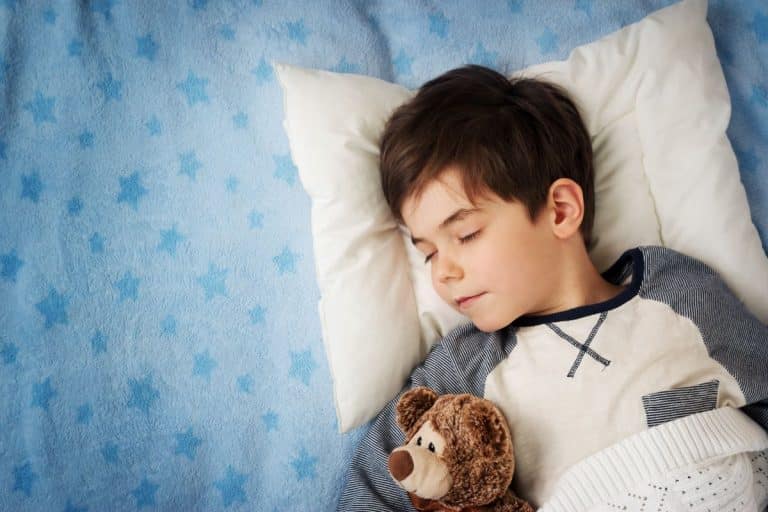A good night’s sleep is important for everyone, but it’s especially valuable for children since they are still growing. One way sleep may be interrupted is through snoring. Occasional snoring isn’t often a cause for concern, but if your child snores severely or every night, it’s a good idea to consult with a doctor who specializes in sleep disorders.
Why Do Children Snore?
Snoring occurs as a result of blockages in the airways behind the throat. As the child inhales or exhales, tissue around the airway vibrates and creates the sounds we associate with snoring.
Some of the most frequent causes of snoring in children are large or swollen tonsils and adenoids, obesity, congestion, allergies, asthma and exposure to secondhand smoke.

How Common is Pediatric Snoring?
It is estimated that 10% of children snore regularly.
Snoring Can Lead to Complications for Children
Fatigue from lack of sleep can lead to difficulty focusing and attention deficit disorders in some children.
Additionally, children who snore are at risk for health issues like diabetes, high blood pressure, heart disease and lung disorders. Snoring can lead to increased urine production at night, which often results in bedwetting.
What Is Child Sleep Apnea?
Obstructive sleep apnea is a more severe type of snoring that leads to consistent lapses in a child’s breathing while asleep. This condition can cause multiple health concerns, including fragmented sleep, which occurs when a person frequently wakes up during a sleep cycle.
Primary snoring, also called simple or habitual snoring, refers to instances when a child snores more often than two times per week but is not associated with any other health concerns.
How Do Doctors Treat Pediatric Snoring?
Our ENT will work with your family to create a customized treatment plan based on your child’s needs. The next steps will depend on what’s causing the snoring. In cases of overgrown adenoids or tonsils, surgery to remove them to increase airflow may be recommended. Other options include Continuous Positive Airway Pressure (CPAP) devices or mouth guards.
It’s also helpful to ensure that your child practices proper sleep hygiene, which includes their sleep environment and habits. Creating a regular sleep schedule, along with reducing light exposure and screen time before bed, are important steps to take. If you’re concerned about your child’s snoring, Collin County ENT is here to help. We’ll work together to make sure your child gets a good night’s sleep.